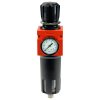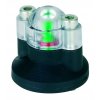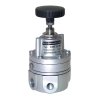Filtration, regulation and treatment of compressed air
Compressed air treatment is an indispensable part of the compressor system. You need to treat compressed air because it naturally has dust particles, oil and, last but not least, condensate. This combination is very damaging to any device you connect to the compressor. Corrosion, clogging and sticking of moving parts shorten the life of valves, pneumatic tools and automated line components. That's why we bring you a comprehensive air treatment program that includes air dryers, filters, pressure regulators, separators and cyclone separators. With our air treatment program , you can extend the life of your entire compressor system many times over and avoid expensive service or line downtime. More on how to filter and condition air in the sequel.
#ShowMore#
Basic principles of air treatment:
- drying - air dryers(condensation dryers, adsorption dryers, membrane dryers)
- filtration - air filters according to ISO 8573(NGF air filtration, high pressure filters, process filters, vacuum filters)
- regulation - air pressure regulators on the distribution lines before the application itself
- getting rid of condensate and oil(cyclone separators, water-oil separation)
What to follow - Compressed air quality classes according to ISO 8573-1
How do you know what quality of compressed air to have for your application? The ISO 8573-1 standard is the guideline. The quality of the produced air is described in the standard by seven classes, from 0 to 6. Each class has a prescribed maximum content of solids, water and oil. Different purity classes are therefore required for different applications and flow rates. For example, for workshop air, the standard prescribes a quality of 4-4-5. The three numbers indicate the three prescribed quality classes in the order - solids quality class, water quality class, oil quality class. The highest demands are of course in the pharmaceutical, chemical and food industries.
We talk in detail about the quality classes in our article from the advisory board: How to filter compressed air
Step-by-step air treatment
It is best to use an air dryerbehind the compressor to ensure that the condensate is removed. It is recommended to use a pre-filter between the air dryer and the compressor. There are different requirements for artisans and different requirements in a medical environment. Therefore, the purity of the air in microns needs to be determined. This filtration is then placed behind the dryer. Finally, we can regulate the compressed air to the desired pressure (atmospheres). All the accessories that we use to treat the air will wear out over time and the filter cartridges or granulate will need to be replaced. We use clogging indicators or differential pressure gauges to measure filter wear. This accessory can only be found on better filters for compressed air treatment.
More articles about air conditioning from our advice section:
-
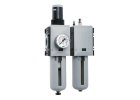 Treatment units; basic units for air
Treatment units; basic units for air
-
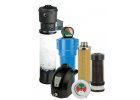 Industrial filtration; ISO 8573 - ISO 12500
Industrial filtration; ISO 8573 - ISO 12500
-
-hankison-susicka-vzduch-kompresor-tllak-kondenzace-rosny-bod.jpg) Air dryers; air moisture removal
Air dryers; air moisture removal
-
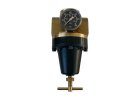 Pressure regulators; precision robust design
Pressure regulators; precision robust design
-
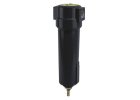 Cyclone separators; cyclone filtration principle
Cyclone separators; cyclone filtration principle
-
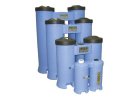 Water-oil separators; separates water from oil
Water-oil separators; separates water from oil
Bestsellers

Replacement filter cartridge PFN25 for filter with filtration capacity up to 25 um and working pressure 16 bar. Operating temperature up to 150°C. Made of stainless steel strainer.

Replacement filter cartridge PFM for filter with filtration capacity up to 0,1 um and working pressure 16 bar. Operating temperature up to 150°C. Made of borosilicate microfibers.

Replacement filter cartridge PFI1 for filter with filtration capacity up to 1 um and working pressure 16 bar. Operating temperature up to 150°C. Made of stainless steel strainer.

Replacement filter cartridge PFN5 for filter with filtration capacity up to 5 um and working pressure 16 bar. Operating temperature up to 150°C. Made of stainless steel strainer.

PFM microfilter with G1/4" connection thread for use in areas with high corrosive environments. Filtration capacity up to 0.1 um. Maximum working pressure is 16 bar, maximum...

Welded PFW pre-filter with G1/4" connection thread for use in areas with high corrosive environments. Filtration capacity up to 1 um. Maximum working pressure is 16 bar,...

PFN25 screen filter with G1/4" connection thread for use in areas with high corrosive environments. Filtration capacity up to 25 um. Maximum working pressure is 16 bar, maximum...

PFI pre-filter with G1/4" connection thread for use in areas with high corrosive environments. Filtration capacity up to 1 um. Maximum working pressure is 16 bar, maximum flow...

PFN5 screen filter with G1/4" connection thread for use in areas with high corrosive environments. Filtration capacity up to 5 um. Maximum working pressure up to 16 bar,...

PFS microfilter with G1/4" connection thread for use in areas with high corrosive environments. Filtration capacity up to 0.01 um. Maximum working pressure is 16 bar, maximum...

Replacement PFA filter cartridge for filter with filtration capacity up to 0,1 um and working pressure 16 bar. Operating temperature up to 150°C. Contains filtering activated...

Replacement filter cartridge PFI20 for filter with filtration capacity up to 20 um and working pressure 16 bar. Operating temperature up to 150°C.

Replacement filter cartridge PFIW1 for filters (PF, HPF) with filtration capacity up to 1 um, working pressure up to 50 bar and flow rate up to 1 260 l/min. Operating...



